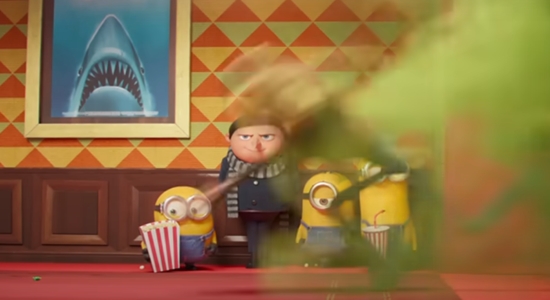
It often doesn’t matter how it ends.
Many a movie is so paltry that you could get the final scenes out of a Cracker Jack box and it would be all the same, no real impact on the viewing experience or anyway on the mind and life of the viewer once the memory of the flick has receded into the dim past of half an hour ago. But does this mean that it’s okay for the Chinese Communist Party to be issuing orders to moviemakers foreign or domestic about what the endings—or other parts—of movies must be?
And should moviemakers supinely obey on the grounds that access to the Chinese market is at stake?
Just a drop
No matter how inconsequential the film, the CCP-imposed changes themselves are consequential. They are propaganda. The tweaking is intended to reinforce messages that help the Party dominate and control. Any single instance of cutting and splicing may be just a drop in the bucket. But the drops add up to buckets, tubs, and oceans of stultifying messaging.
Moreover, some movies are good, exhibiting originality and integrity of theme and execution. Rejiggering them to appease the CCP then does injury to the work itself.
As I have determined by extrapolating from a trailer, the 2022 animated feature “Minions: The Rise of Gru” is not a good movie. Its frenzied cookie-cutter cuteness does not inspire, ennoble, or charm. Even if it is not quite forgettable, you wish you could forget it.
But the CCP wants to control everything social and cultural within its reach, including the foreign import “Minions.” When it came out, The New York Times said (“In China’s Version of ‘Minions’ Movie, Morality Triumphs,” August 23, 2022):
In the original version, the film’s two main villains make a bold escape, unpunished. But on Chinese social media, photographs of what appeared to be a jarringly different epilogue stitched into the credits section soon began to circulate widely.
According to that epilogue, one of the villains got a lengthy prison sentence for his crimes, while the other became an attentive father of three, in what some saw as a nod to China’s policy of encouraging higher birthrates.
The film’s new ending reflects the increasingly moralistic bent of top Chinese officials, who have called on artists to spread “socialist core values” in their performances….
Many “Minions” viewers in China mocked the propagandistic overtones of the special ending. Some derisively compared the photo-and-text presentation to PowerPoint slides. Others remarked that they preferred additions to deletions—at least, moviegoers weren’t obliged to sit through the epilogue if they didn’t want to.
The shoulder-shrugging “Well, it could be worse” attitude of some Chinese viewers is lamentable. Sure. It often could be worse. It could also be better.
Just barely
Bai Xiaochuan, “happy to be able to see the film at all” despite what she called a cringeworthy addition, said: “I personally think that the addition of these ‘special endings’ is still acceptable, though just barely.” On the basis of this kind of assumption, she may well also suppose that let’s say four tenths of the evils perpetrated by the Chinese Communist Party, being milder than the rest, are also acceptable, “though just barely.”
Responses to the Party’s cultural engineering could be worse. Better:
A popular film blog, “Du Sir,” said that the altered plots in the “Minions” movie, which runs a minute longer in Chinese theaters, and other films were condescending to Chinese audiences.
“Why doesn’t the rest of the world need this extra minute?” a writer of the blog wrote on Saturday. “And why are we the only ones who need special guidance and protection, lest a cartoon has the power to corrupt?”
I can’t find the Du Sir blog. I hope that’s only because it’s in Chinese.





